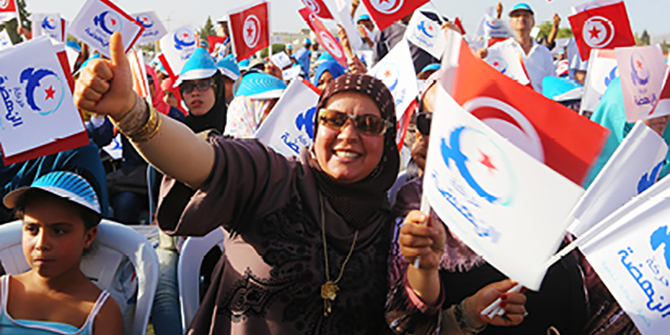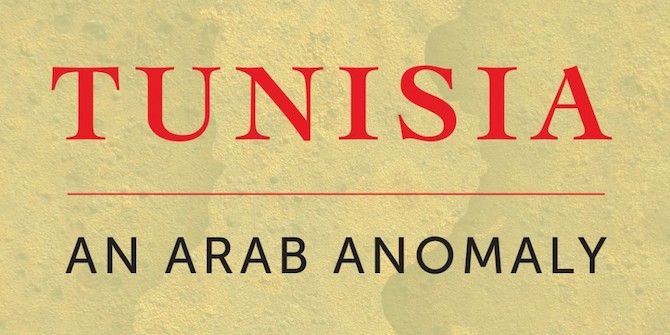by Alcinda Honwana

A second wave of global protests following the Arab Spring has brought youth onto the streets to voice their frustrations. United across time-zones and cultures, these young people are responding to shared challenges of political and economic exclusion. But no longer settling for a change in leadership, protesters are using new forms of mobilisation to challenge political monopolies and expand public engagement.
Early in 2019, Algerian president Abdelaziz Bouteflika was ousted following months of youth-led street demonstrations. Today, protesters continue to demand the end of military control over the country. Around the same time, in April, another long-standing dictator, Omar al-Bashir, was deposed by mass youth demonstrations in Sudan. Following Al-Bashir’s departure protests continued against the military transitional government.
We are witnessing similar uprisings by youth in Lebanon and Iraq, which have forced the resignation of each country’s sectarian-based governments. Demonstrations continue as the youth demands a complete end to sectarian politics. In Hong Kong, youth protests, which started as an opposition to an extradition bill, have now grown to demand the resignation of the territory’s Chief Executive and full autonomy from mainland China. In Haiti, thousands of young people seeking to oust President Jovenel Moïse came out to the streets in September to protest poverty, inequalities and government corruption.
The year has also seen millions of young people from different walks of life, united across cultures and time-zones, come out to the streets to demand urgent action to tackle climate change. Among those, many were secondary school students below voting age, worried about the world they will inherit due to politicians’ inaction and denial of global warming. Likewise, the relentless non-violent resistance of the Extinction Rebellion movement has been confronting environmental inaction.
Although youth have always been at the forefront of political protests, those of the Arab Spring in 2011 marked a new era in youth political activism. Apart from deposing entrenched dictatorships in Tunisia, Egypt and Yemen, the Arab Spring revolutions also became a catalyst for a series of youth protests and social movements all over the world – from the Y’en a Marre in Senegal, Los Indignados in Spain, the Occupy Movement in various countries including the UK and the #FeesMustFall in South Africa, to the Umbrella Movement in Hong Kong and #BlackLivesMatter in the United States, to mention just a few.
What is waithood?
The world has never been so young, with more than 50% of the global population aged below 30 in 2012. Most of these young people live in developing countries, with sub-Saharan Africa having over 70% of its population aged below 30. The majority of young people, in both developed and developing countries, are largely excluded from major socio-economic institutions and political processes.
I contend that young people all over the world are experiencing waithood, a prolonged period of suspension in which people’s access to social adulthood is delayed or denied. Whatever their class background, many youths cannot afford to form families and households and are unable to become fully independent and partake in the privileges and responsibilities of adult life.
Apart from material deprivations waithood is also marked by political marginalisation, a lack of voice and a loss of dignity. While young people in developing countries have been experiencing waithood as a result of failed neoliberal structural adjustment policies, bad governance, corruption and an absence of civil liberties in developed countries after the economic crisis of 2008 drove youth unemployment rates to historically high numbers, creating what some have dubbed the ‘boomerang generation’ – young people returning home and depending on their parents after graduation. Most young people in the West can no longer live according to societal standards for material and social well-being and are disengaged from politics. While the experiences of waithood are not entirely new, they have become more widespread and exacerbated due to failed neoliberal economic policies, and the increased political marginalisation of youth in this globalised world.
Beyond the disparities in their material, cultural and political situations, young people in rich and poor countries are affected by similar problems of political and socio-economic exclusion, and restricted futures. This struggling global generation has had enough. They are out in the streets to make their voices heard and to claim for themselves a political and socio-economic space.
I argue that, for all their diversity in terms of geography, focus and immediate consequences, these movements appear to have one important thing in common: young people struggling with waithood and political marginalisation play a central role. I also argue that the most recent wave of youth protests seems to have learned a few lessons from the shortcomings of the Arab Spring.
Horizontalism after the Arab Spring
The young no longer trust the state’s willingness and ability to find solutions to their problems. They are constituting themselves into organic voluntary associations of individual citizens, activists, bloggers, public communicators and community organisers striving to create new forms of political engagement, based on broad, decentralised, horizontal and consensus-based approaches to socio-political mobilisation – exhibiting what some have called ‘horizontalism’. This horizontal approach to political mobilisation and engagement has allowed them to depose long-standing leaders, expand the political space for public participation, broaden the boundaries of individual freedoms and challenge the state’s monopoly on political discourse.
Nevertheless, these movements continue to wrestle with how to make more meaningful political interventions beyond street protests, and how to achieve deeper systemic transformations than only the replacement of unpopular leaders. Until very recently, once old regimes fell and the enthusiasm and energy of street protests waned, young activists often found themselves divided. The broad unity forged during the protests dissipated as they struggled to define a new political role for themselves. And old, and more established, political forces moved in to occupy the vacuum. Those were the cases in Tunisia and Egypt in 2011, and Senegal in 2012 and Burkina Faso in 2015.
It appears that this second wave of youth protests has learned a few lessons from the Arab Spring revolutions. Young protesters are not settling for a mere change of leadership and are instead staying on the streets to prevent another set of corrupt leaders from governing and making decisions on their behalf.
In Algeria, after ousting Bouteflika, young protesters continue to demand the end of military control and a full restructuring of the political system and are boycotting the upcoming elections. They claim that electing a new president under the existing system would simply perpetuate the military’s grip over power. In Sudan, protesters continued to demonstrate until they forced the military transition government to accept a civilian-military coalition to manage the transition and prepare new democratic elections. In the recent elections in Tunisia, in September 2019, young people disappointed with the post-Arab Spring government came out in unprecedented numbers to vote them out. They overwhelmingly elected Kais Saied, a non-establishment candidate with no political affiliation, regarded as ‘clean’, honest and non-corrupt. Here horizontal politics allowed young Tunisians to mobilise and use the ballot box to redress the mistakes of the past.
In Lebanon, young people’s critique of the status quo is transcending sectarian divides. For the first time, sectarian leaders, who in the past enjoyed complete loyalty as each sect’s protectors, were directly challenged by their own communities. From the Sunni prime minister Saad Hariri, the Shiite speaker of parliament Nabih Berri, the Christian foreign minister and son-in-law of the President Gebran Bassil, to the leader of Hezbollah, Hassan Nasrallah, no leader has been spared as demonstrators shouted ‘thieves, thieves, thieves!’. Despite the government’s resignation, young Lebanese are vowing to stay the course until this sectarian, kleptocratic system is radically changed.
Young Hong Kongers dealing with scarce employment and extraordinary high housing costs are leading political demonstrations calling for the resignation of China’s backed leader, Carrie Lam, and demanding Hong Kong’s full autonomy from the mainland. What started as a protest against legislation morphed into a broader protest against a leadership that is not responding to youth aspirations. The youth-led climate change movements have surmised that beyond isolated interventions a global coalition with persistent non-violent actions (marches, strikes and boycotts) is vital to pressure leaders to act on climate justice. The overall message in all these protests appears to be ‘keep going’, ‘stay on the streets’, ‘stay the course’, ‘do not relent’ against the stratagems of these entrenched regimes.
However, so far, young people continue to avoid the structures and political ideologies that turn protest movements into formal political parties. They reject the established political order based on doctrinaire, hierarchical and authoritarian models of mobilisation and participation as inadequate and corrupt. Their investment in novel technologies and new forms of mobilisation, deliberation and consensus-building stands as a self-conscious counterpoint to multi-party politics, religious sectarianisms and dogmatic debates over representative democracy. While the horizontalist approach foregrounds the agency of youth and their capacity for creative and innovative engagement, its ‘rhizomatic’ nature makes it difficult to contend for political power within the current political landscape.
It is too early to know the extent to which this generation will indeed manage to effect profound and long-lasting socio-economic and political transformations. What is clear is that this waithood generation that may seem to be doomed to lurch between a sense of inadequacy, despondency and lack of fulfilment is courageously challenging the establishment. The bourgeoning of youth protests and social movements dealing with a variety of issues, from socio-economic grievances, political freedoms, women’s and LGBTQ rights to environmental and climate justice shows that this generation realises that they are a force for change.
Contemporary youth activism, and its uncompromising refusal of current political cultures, underscores the potential for redrawing and redesigning the bounds of political imagination and fostering new ‘politics’. Something, clearly, is waiting to be articulated in this relentless refusal of ‘the political’ by the younger generation. Radical and systemic change will take time. It might even take more than a generation, but young people in waithood have already started this process. As Franz Fanon predicted, as a generation, they seem to be discovering their historical mission and seeking ways to fulfil it.
This piece was originally published on the LSE Africa Centre blog, and is reproduced here with their permission.







3 years on and Nigerian youths are poised to pay the politicians at the polls
Very true observations. Two years after, still relevant. We need to do better
This is very informative people need to stand up for their voices to be heard.
Great article. People voice needs to be heard. Protest is one the way to express how we feel.
Thank you so much for informataive post.
It’s one year since protesting Nigerian youths waving the Nigerian flag were killed by Nigerian soldiers and no one has taken the blame for that act.
The soldiers insist they shot no one and our government officials claim eye witnesses at the scene are lying.
The Arab Spring was an eye opener for youths round the world and what gave Nigerians the courage to start the #ENDSARS protest.
Our leaders need to do better and must be held accountable for their actions.
Our voice needs to be heard
BJain Pharma India’s most trusted homeopathic medicine manufacturer & Exporter in UK, Australia, Canada and more. We have huge range of Homeopathy medicines, Dilutions, Mother Tinctures, Remedy kits, Globules.
prostest everywhere. If you are a Canadian living in Ghana and need emergency consular assistance, call the High Commission of Canada to Ghana, in Accra, and follow the instructions. At any time, you may also contact the Emergency Watch and Response Centre in Ottawa.
This reminds me of ENDSARS in Nigeria. Leaders have to sit up.
sure
ENDSARS feelings need to be channeled into getting out corrupt Government leaders
Very apt observation
100% Genuine Products, order homeopathic medicine online, Free Home Delivery, Easy return policy, Lowest price guaranteed. Your Online Homoeopathic Medicine Store. Highest discount on homeopathy medicine.
I am glad i have learnt something new, thanks for the wonderful teaching
This reminds me of ENDSARS in Nigeria. It’s about time leaders sit up.
I agree with you, all we need are leaders who are ready to listen to the people.
Everyone needs to be vigilant
True talk
Are they ready to listen. They need to swept off